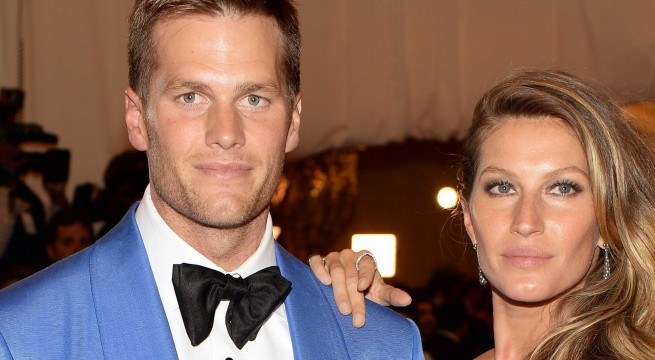Yes ladies and gentlemen, Golden Boy dimple-chinned four-time champion Tom Brady, quarterback of the New England Patriots, has had his “deflate-gate” four-game suspension reinstated by the NFL. How did this happen, you ask? Is it not a travesty of justice, you query? The answer is: maybe. Though that answer is vague, one thing is more clear: the Second Circuit, the Federal Court of Appeals considering the case, got the decision correct.
One may justifiably ask: how can that be? After all, many feel that the evidence presented in the NFL’s case against Brady was never that strong to begin with. For such individuals, the United States District Court’s decision to overturn Roger Goodell’s suspension felt justified. So how is the Court of Appeals’ decision correct?
The answer lies in the power that US courts, assisted by legislation on both the federal and state level, confer upon arbitrators. Because our courts are overburdened, they find any possible method to pass off the burden of administration of justice, within the bounds of constitutional law. In the civil realm, that includes permitting private parties to agree to have their cases heard by private arbitrators. Those arbitrators must be independent, yet where parties are aware of a potential for bias and nevertheless agree to submit a legal issue to an arbitrator, claims of bias are waived.
In the case of the NFL and the Players’ Association, the parties agree, via collective bargaining agreement, to submit disputes to Goodell. Many consider him anything but an objective arbitrator, given that his checks are issues by ownership, and that he has been charged with overseeing all stages of doling out punishment under the CBA. In other words, Goodell has been conferred with the power of judge, jury, and executioner.
This may be an uncomfortable reality for the players, who are perhaps just now understanding the amount of power they placed in one individual, who has no legal background or other qualifications for administering a system of justice over such a large swath of employees. And let’s be honest: Goodell has, repeatedly, displayed that he is not up to the task. His punishments are inconsistent, swayed by public opinion, and often fail to sufficiently balance a need to balance deterrent impact with proper consideration of the impact of any particular player’s conduct.
However, the attorneys and other representatives for those players have, frankly, no excuse for failing to explain the NFL’s punishment system to their clients. And if they warned their clients of the eventuality that they were creating what is, for all purposes, a mini-dictator, neither do the players have my sympathy. At the end of the day, all parties agreed to submit complicated issues of fault and damage to an under-qualified arbiter.
In addition, they provided Goodell, via various documents, broad authority to decide what punishment is correct in any given situation. That is true even of the document relied upon by the Association on behalf of Goodell, which provided for, in essence, fines in the case of equipment violations. The fine print of that same document provided that Goodell could also choose to go above and beyond the fines set forth therein, both by increasing fine amounts, and by suspending players, under ill-defined circumstances. The players fully agreed to this. If history tells us anything, it is that when power is ceded without sufficient guidelines, abuse follows.
So, the question was never whether Goodell was correct “beyond a reasonable doubt,” as would be required in a criminal system, when he concluded Brady was involved in deflating footballs. Rather, the question was whether he had any basis at all to support his decision, and a legal basis for the chosen punishment. As an arbitrator, if the answer is “yes,” it is incumbent upon courts to defer to that judgment. Here, the infamous Wells Report, Brady’s text messages to equipment personnel, Brady’s decision to destroy his phone, and tape of an equipment manager entering a bathroom with footballs prior to the game all constitutes evidence supporting suspension. The issue, then, is not whether the Court of Appeals got it wrong, but what the district court was doing overturning Goodell’s judgment in the first place.
It is extremely unlikely that Brady will successfully seek review by the United States Supreme Court. As such, it is extremely likely that his punishment will stand. Lucky for the Patriots, that will probably just mean he is fresh for the playoffs, and in pursuit of ring number five. In the meantime, we should all enjoy the sobs and curses coming from the country’s northeast quadrant. And further rejoice knowing Goodell will likely be emboldened to continue in his position as arbitrator of player discipline, which should provide many entertaining moments for years to come. Lest it be forgot: he is pretty terrible at this, and his seemingly random administration of justice should entertain for years to come.

